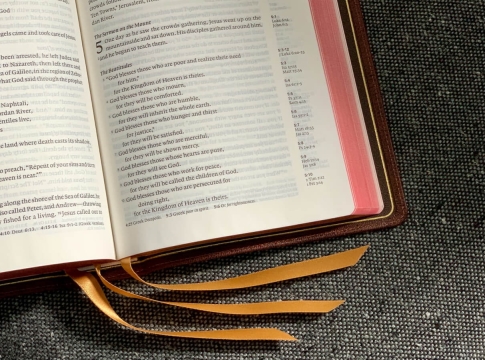
The Bible repeatedly addresses the subject of why good people (the “righteous”) suffer while bad people (the “wicked”) triumph.In several of the Psalms, God is publicly questioned over this matter. Psalms 10, Psalm 35, and Psalm 94, among many others, question God about why He permits the wicked to prosper and the virtuous to suffer misfortune. “How long will the wicked rejoice, O Lord? How long will they do this?” (Psalm 94:3).
A number of Proverbs also acknowledge unfair circumstances and counsel against feeling jealous of the wealth of the wicked: Proverbs 24:19 says, “Do not fret because of evildoers, or be envious of the wicked.” Also see Proverbs 23:17, 24:1, and 3:31. The suffering of the ostensibly righteous Job is questioned throughout the entire book of Job.
God will bring justice in due time
The most important lesson to be learned from the Bible regarding the good people’s wealth and the good people’s suffering is that God observes, cares about, and will eventually right injustice (see, for instance, 2 Thessalonians 1:6–8), albeit He may not do so when we want Him to. Psalm 73 and Hebrews 11 have two examples of this.
We read of a man who wrestled with this identical issue and concluded that he could [trust God for final justice] in Psalm 73. He questioned whether his own righteousness was “all in vain” (Psalm 73:13) and became irritated with the seeming unfairness of the “prosperity of the wicked” (Psalm 73:3) who “increased in riches” (Psalm 73:12).
However, when he thought about who God was, he realized that in due time, God would bring justice: “…It was troublesome in my sight until I came into the sanctuary of God; Then I perceived their end. Surely You set them in slippery places; You cast them down to destruction. How they are destroyed in a moment! They are utterly swept away by sudden terrors!” (Psalm 73:16-20). The psalmist was able to set aside his struggle and put his trust in God. “Whom have I in heaven but You? And besides You, I desire nothing on earth. My flesh and my heart may fail, but God is the strength of my heart and my portion forever” (Psalm 73:25-26). When he grasped the eternal perspective of God, his heart found peace.
Remember God’s eternal perspective
Hebrews 11 lists many people who were considered to be excellent for their faith. The chapter tells of the sufferings of these righteous people. In their suffering, they were looking beyond their experience on earth to their future life with God in heaven, “All these died in faith, without receiving the promises, but having seen them and having welcomed them from a distance, and having confessed that they were strangers and exiles on the earth. For those who say such things make it clear that they are seeking a country of their own. And indeed, if they had been thinking of that country from which they went out, they would have had opportunity to return. But as it is, they desire a better country, that is, a heavenly one. Therefore, God is not ashamed to be called their God; for He has prepared a city for them” (Hebrews 11:13-16).
Once more, we observe that confidence, hope, and some degree of solace are brought about in the face of unjust suffering when we recall God’s everlasting perspective and character. Furthermore, our comfort does not end there. As we walk in faith and maintain a connection with God, we are consoled in these trying times (2 Corinthians 1:3-5; Isaiah 30:18-19).
God is aware of our battles with injustice, which is why the Bible contains these and several other examples. While our struggles are understandable, we can find comfort in the knowledge that “He will wipe away every tear from [our] eyes; and there will no longer be any death; there will no longer be any mourning, crying, or pain; the first things have passed away” (Revelation 21:4). This is because God is a just and loving God.





